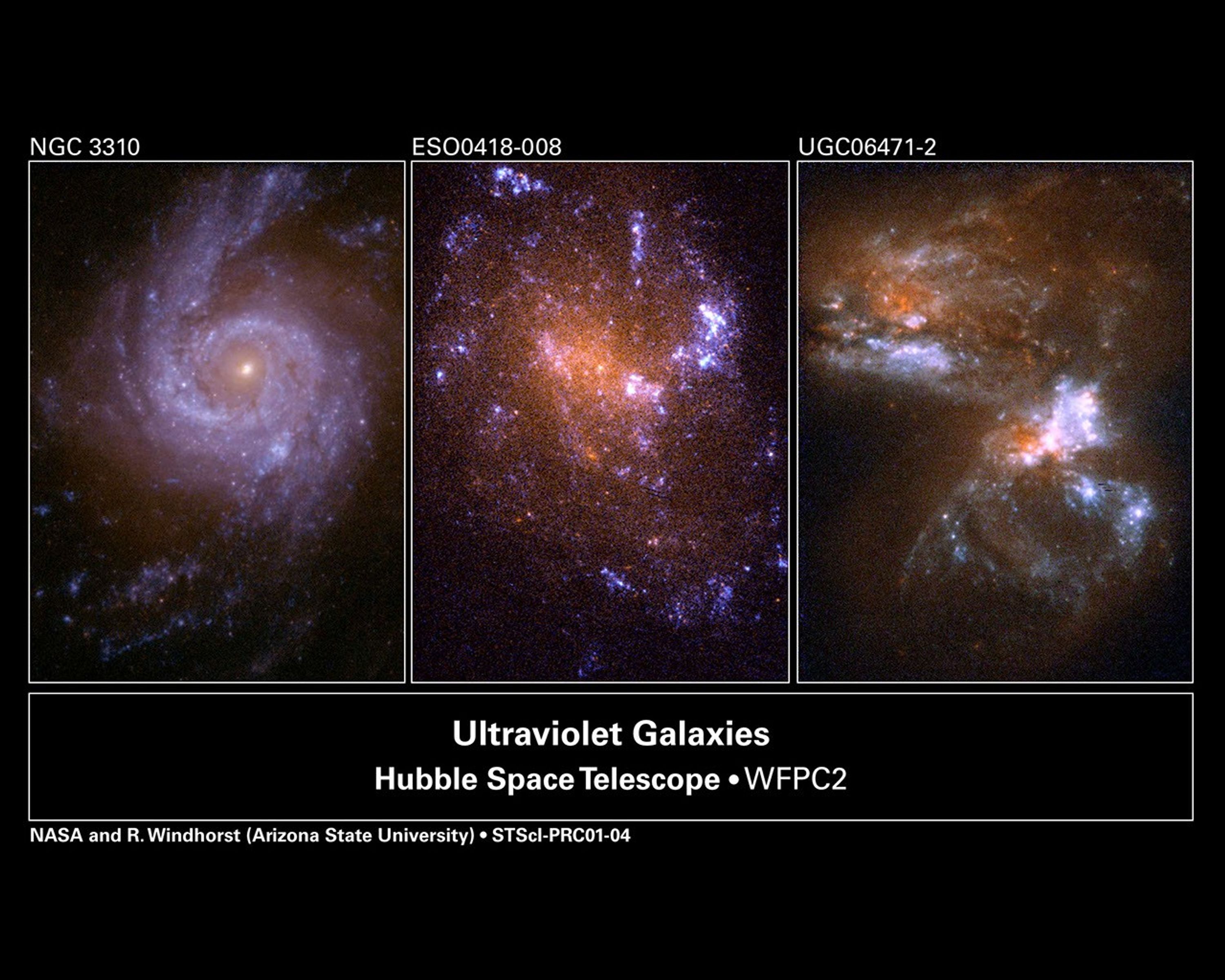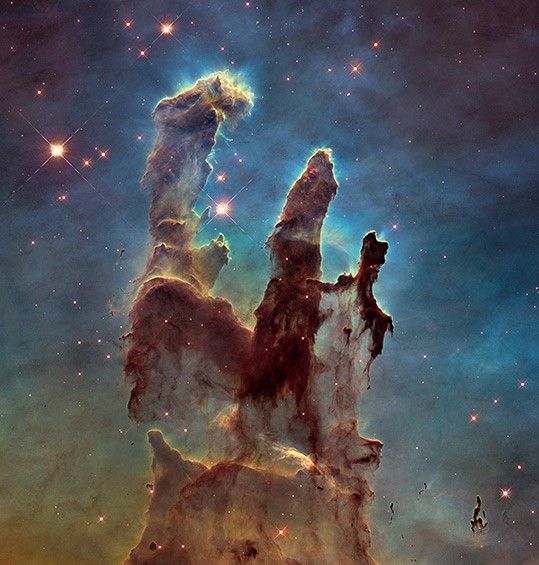Astronomers are using these three Hubble telescope images of nearby galaxies to help tackle the question of why their distant relatives have such odd shapes, appearing markedly different from the typical "ellipticals" and "spirals" seen in the nearby universe. By viewing these galaxies in ultraviolet light, astronomers can compare their shapes with those of their distant relatives. The results of their survey support the idea that astronomers are detecting the "tip of the iceberg" of very distant galaxies. Based on these Hubble ultraviolet images, not all the faraway galaxies necessarily possess intrinsically odd shapes.
1 min read
Hubble’s Ultraviolet Views of Nearby Galaxies Yield Clues to Early Universe
Astronomers are using these three NASA Hubble Space Telescope images to help tackle the question of why distant galaxies have such odd shapes, appearing markedly different from the typical elliptical and spiral galaxies seen in the nearby universe. Do faraway galaxies look weird...
Related Images & Videos

Hubble's Ultraviolet Views of Nearby Galaxies Yield Clues to Early Universe
Astronomers are using these three NASA Hubble Space Telescope images to help tackle the question of why distant galaxies have such odd shapes, appearing markedly different from the typical elliptical and spiral galaxies seen in the nearby universe. Do faraway galaxies look weird...
Share
Details
Last Updated
Mar 20, 2025
Contact
Media
Claire Andreoli
NASA’s Goddard Space Flight Center
Greenbelt, Maryland
claire.andreoli@nasa.gov
Credits
NASA, Rogier Windhorst (Arizona State University, Tempe, AZ), and the Hubble mid-UV team



































